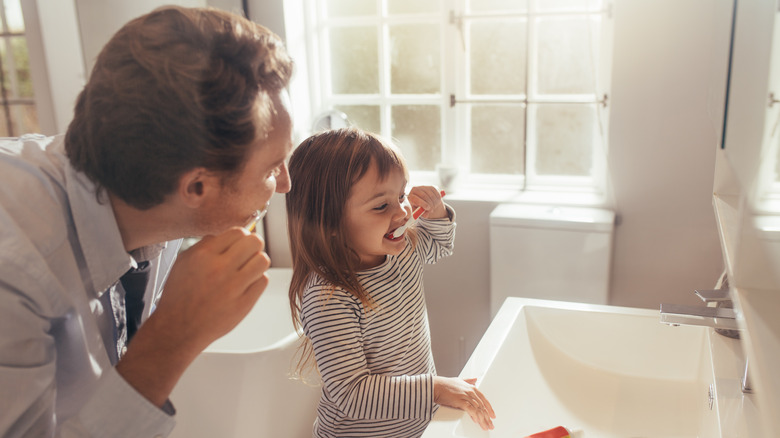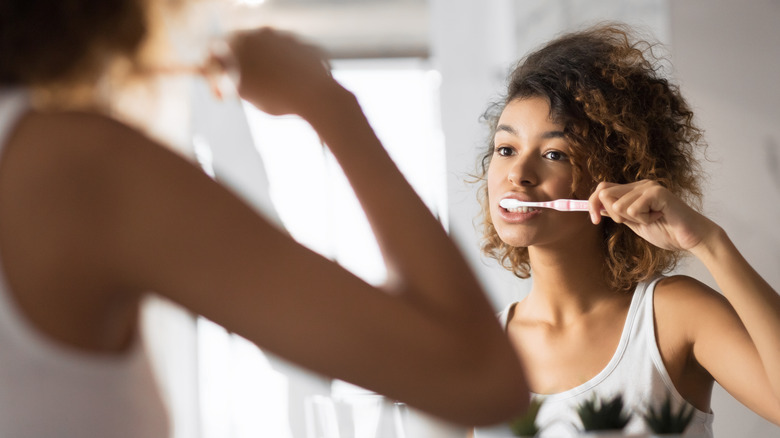Stop Rinsing Your Mouth After Brushing Your Teeth. Here's Why
You've probably swished water around in your mouth after brushing your teeth — or even at the dentist office at a teeth cleaning. While you think you're giving your mouth a final cleansing rinse, experts say you may actually be doing more harm than good.
By rinsing your mouth after brushing your teeth, you're actually getting rid of some of the good stuff from toothpaste, like fluoride. According to the Oral Health Foundation, fluoride is the most important toothpaste ingredient. It helps prevent tooth decay, strengthens your enamel and reduces the amount of acid your teeth produce thanks to bacteria.
And it's not just rinsing with water that is a no-no. You should also avoid using mouthwash directly after brushing, as it could also wash away all of those fluoride benefits. It should be used at a different time than teeth-brushing to maximize the perks of fluoride and mouthwash.
Brushing your teeth — the healthy way
If you rinse your mouth after brushing your teeth and are panicking, you're not alone in your methods. A poll from the Oral Health Foundation found that 62 percent of people rinse their mouths after brushing their teeth.
The best thing to do after brushing your teeth? Spitting without a rinse. It will get rid of the excess toothpaste, while allowing the fluoride to get to work on your pearly whites. In the same poll, only 23 percent of people admitted to using this recommended tooth-brushing method.
Although it may sound daunting to change the way you've been brushing your teeth since childhood, the good news is that foregoing rinsing can reduce your risk of tooth decay by up to 25 percent (via CNN). You should also avoid drinking anything other than water after brushing your teeth at night so the fluoride can continue working while you're sleeping.


